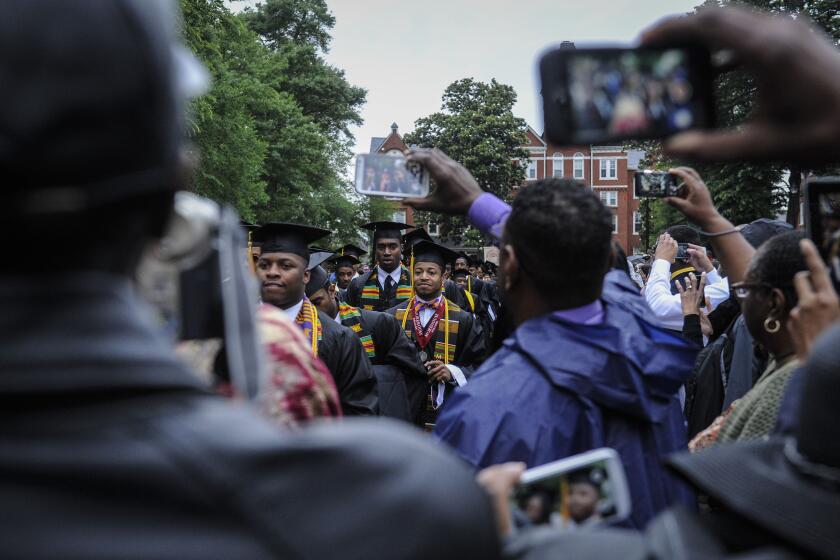## From Desert Sands to Digital Dominance: Can Saudi Arabia Really Win the Esports Throne? Saudi Arabia, a nation known more for oil and ancient history, is making a bold move into the 21st century: esports. With a staggering $38 billion investment, they’re aiming to become the global powerhouse of competitive gaming. But can this ambitious plan, hailed by some as the “Saudi Sportswashing” campaign, really overcome cultural barriers, ethical concerns, and the established dominance of other gaming nations? The Los Angeles Times dives into this controversial story, exploring the kingdom’s motivations, its strategies, and the potential consequences for the future of esports. Buckle up – the battle for digital supremacy is about to get real.
Investing in the Future: Saudi Arabia’s Strategic Stakes in Industry Giants

Saudi Arabia’s National Gaming and Esports Strategy has allocated a staggering $38 billion to position the kingdom as a global hub in the games and esports sector by 2030. One key aspect of this strategy is Savvy Gaming Group’s savvy investment in industry giants like Nintendo, Activision, and Electronic Arts. Savvy, a company owned by the Public Investment Fund, has acquired significant stakes in these global gaming powerhouses.
According to Savvy corporate materials, the company holds stakes in roughly 40% of the global esports industry, including the Electronic Sports League, the gaming equivalent of the NFL. Savvy’s acquisition of Scopely, the studio behind “Pokemon Go!” and “Monopoly Go!”, catapulted the company to become the top mobile game publisher in the U.S. and the fourth globally, excluding China.
The staggering scale of the investment has made Saudi Arabia the impossible-to-ignore behemoth in the room, especially amid a post-pandemic contraction hitting the industry in the U.S. and Europe. This significant investment is part of Saudi Arabia’s broader efforts to diversify its economy and create new opportunities for growth.

Savvy’s Investment in Industry Giants
- Nintendo: Savvy holds a 4.19% stake in the Japanese gaming giant.
- Activision: The company owns a 4.9% stake in the popular gaming franchise.
- Take-Two Interactive: Savvy’s stake in the gaming company is approximately 6.52%.
- Electronic Arts: The company holds a 9.34% stake in the gaming powerhouse.
The significance of Savvy’s investment lies in its potential to reshape the gaming landscape and create new opportunities for growth. As the gaming industry continues to evolve, Saudi Arabia’s strategic stakes in industry giants will undoubtedly play a crucial role in shaping its future.

“Gameswashing” or Game Changer? The Ethical Implications
Saudi Arabia’s National Gaming and Esports Strategy has been met with both praise and criticism. While some see the strategy as a game-changer for the gaming industry, others raise concerns about the kingdom’s human rights record and the notion of “gameswashing.”

Saudi Arabia’s Image
The kingdom’s human rights record has been a subject of concern for many. The notion of “gameswashing” suggests that Saudi Arabia is using its gaming investments as a way to improve its image and distract from its human rights issues. This criticism is not unfounded, given the kingdom’s history of suppressing free speech and dissent.
However, others argue that Saudi Arabia’s investments in gaming can have a positive impact on the industry and create new opportunities for growth. By investing in gaming, Saudi Arabia is diversifying its economy and creating new jobs, which can have a positive impact on the local community.

The Gaming Community’s Response
The gaming community has responded to Saudi Arabia’s investments with a mix of emotions. Some players and industry professionals welcome the investment, seeing it as a positive step for the industry. Others, however, express concern about the kingdom’s human rights record and the notion of “gameswashing.”
The response from the gaming community highlights the complexity of the issue and the need for a nuanced approach. While Saudi Arabia’s investments in gaming can have a positive impact, it is essential to address the kingdom’s human rights issues and ensure that its investments are transparent and accountable.

The Future of Esports: Saudi Arabia’s Competitive Edge
Saudi Arabia’s National Gaming and Esports Strategy has allocated significant resources to develop a competitive esports ecosystem. The kingdom’s investments in gaming infrastructure, talent acquisition, and event hosting have created a competitive edge that sets it apart from other countries.

Financial Muscle
The kingdom’s vast resources have enabled it to invest heavily in gaming infrastructure, talent acquisition, and event hosting. This financial muscle has given Saudi Arabia a competitive edge in the esports industry, allowing it to attract top talent and host high-profile events.
The kingdom’s investments in gaming infrastructure have created a robust ecosystem that supports the growth of the industry. From state-of-the-art facilities to esports districts, Saudi Arabia’s gaming infrastructure is unmatched in the region.
Infrastructure Development
Saudi Arabia’s investments in gaming infrastructure have created a robust ecosystem that supports the growth of the industry. The kingdom has developed state-of-the-art facilities, esports districts, and other infrastructure that cater to the needs of gamers and gaming companies.
The kingdom’s esports districts, such as Qiddiya City, are designed to provide a world-class gaming experience. These districts feature four arenas, space for esports clubs and gaming companies’ regional headquarters, and other amenities that cater to the needs of gamers.
Global Influence
Saudi Arabia’s growing presence in the global esports scene is undeniable. The kingdom’s investments in gaming have created a competitive edge that sets it apart from other countries. This growing influence is expected to reshape the esports landscape and create new opportunities for growth.
The kingdom’s participation in international esports events, such as the FIFAe World Cup, has further solidified its position as a major player in the industry. Saudi Arabia’s involvement in these events has created a platform for the kingdom to showcase its gaming expertise and attract top talent.
Conclusion
The LA Times paints a compelling picture of Saudi Arabia’s audacious foray into esports, a $38 billion gamble to seize control of a burgeoning global industry. Beyond the staggering investment figures, the article reveals a deeper narrative of ambition and influence. Saudi Arabia, facing an economic diversification challenge, sees esports as a potential game changer, a platform to reshape its international image and cultivate a younger generation. The acquisition of major teams, the controversial “Saudi Pro League” for gamers, and the lavish Saudi Gamers8 festival all point towards a calculated strategy to dominate the esports landscape.
But this bold move isn’t without its critics. The article highlights the ethical concerns surrounding Saudi Arabia’s human rights record, questioning whether a nation with such a contentious history can truly become a champion of a diverse and inclusive gaming community. Furthermore, the long-term sustainability of this strategy remains uncertain. Can a nation solely focused on financial dominance truly foster the creativity and innovation that fuels the esports ecosystem? Only time will tell if Saudi Arabia’s gamble will pay off, but one thing is clear: the global landscape of competitive gaming is entering a new era, one where geopolitical power plays collide with the thrill of victory.
As the world watches Saudi Arabia’s ambitious ascent in esports, a fundamental question emerges: will the pursuit of virtual dominance ultimately overshadow the very values that make gaming a global phenomenon? The future of esports hinges on finding a balance between competition and inclusivity, between financial gain and ethical responsibility. The stage is set, and the world is watching.